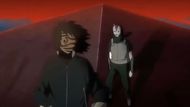Naruto fans still shudder at the thought of the chilling night when Itachi Uchiha turned his blade against his own blood. One by one, every member of the Uchiha clan fell, except Sasuke. The prodigy, who once symbolized hope, became a ghost of betrayal. What could drive someone so talented, so revered, to commit an unthinkable act against his kin?
The answer isn't as simple since it’s layered in secrets, sacrifice, and political deception. Itachi didn’t murder out of hate in Naruto. He acted out of twisted love and duty – a silent salvation. His choice was meant to prevent a war, one that could have consumed the entire village.
The Uchiha clan faced systemic discrimination in Konoha. Village elders suspected them of controlling the Nine-Tailed Fox attack. They were relocated to a secluded district for easier surveillance. This treatment fueled resentment among clan members in the Naruto series.

Fugaku Uchiha and other leaders began plotting rebellion. They wanted to overthrow the current regime and install their own leadership. The village's intelligence network discovered these plans early. War seemed inevitable without a drastic intervention.
Danzo Shimura orchestrated the entire massacre behind the scenes. He presented Itachi with an impossible choice at age 13. The clan would die regardless of Itachi's decision in the Naruto narrative. The only difference was whether Sasuke would survive.
Itachi saw the brutal reality of the Third Great Ninja War during his childhood. He despised conflict and bloodshed above all else. Danzo twisted his childhood scars to influence the gifted shinobi. The elder convinced him that mass murder was the only path to peace.
The Night of Betrayal in Naruto

Itachi partnered with the masked Obito, posing as Madara Uchiha, for the massacre. He couldn't complete such a massive undertaking alone. Obito had his own reasons for wanting the Uchiha eliminated. Their alliance made the unthinkable possible.
In Naruto, the slaughter happened in a single night across the Uchiha compound. Parents, children, and elderly members - none were spared except Sasuke. Itachi even killed his own parents, though they understood his reasoning. They died without resistance, accepting their son's burden.
Itachi subjected young Sasuke to traumatic genjutsu during the massacre. He showed his brother the deaths repeatedly through illusion. Itachi wanted Sasuke to grow strong enough to eventually kill him. He portrayed himself as a heartless villain obsessed with power. He hid his true motives to protect Sasuke's innocence.

Becoming part of the rogue group Akatsuki fulfilled several hidden agendas for Itachi. It provided cover for his true loyalties to Konoha. He could monitor threats to the village from within. His presence also deterred attacks on his homeland.
He walked a tightrope between maintaining his cover and protecting Konoha. Every mission brought him closer to his inevitable confrontation with Sasuke.
The truth about Itachi's motives emerged only after his death. The Naruto series revealed the full scope of his sacrifice through flashbacks and testimonies. He accepted the village’s hatred as a burden to preserve its fragile peace. His brother's love was the only reward he sought.
In the end, Itachi prevented civil war in Naruto but at an enormous moral cost. Alternative solutions might have existed with more time and wisdom. A 13-year-old shouldn't have faced such impossible choices. Itachi Uchiha's clan massacre stands as one of anime's most morally complex storylines. It forces the audience to rethink what it truly means to be a hero.
